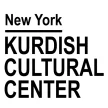Celadet Alî Bedirxan (1893-1951)
 Celadet Alî Bedirxan was a Kurdish diplomat, writer, linguist, journalist, and political activist.
Celadet Alî Bedirxan was a Kurdish diplomat, writer, linguist, journalist, and political activist.
He was born in Constantinople in 1893, to a princely Kurdish family from the Botan region. His paternal grandfather was Bedir Khan Beg, the last Emir of Botan.
Celadet’s family affirmed their identity as subjects of the Ottoman Empire and enjoyed the privileges that the Ottomans afforded to Kurdish elites. But they were also involved in associations to promote Kurdish culture and strengthen Kurdish identity.
In 1908 Celadet’s father, Emin Ali Bedirxan, co-founded the Society for the Rise and Progress of Kurdistan. It was the first public Kurdish nationalist organization. It opened primary schools in Constantinople with Kurdish as the language of instruction, and a newspaper, Kürt Teavün ve Terakki Gazetesi, which carried articles on Kurdish history and literature.
But 1908 also saw the Young Turk Revolution, which proceeded to shut the Society down and made Kurdish organizations illegal. Celadet earned a master’s degree in law at Istanbul University. During World War I he served as an officer of the Ottoman army and was stationed in Eastern Anatolia. After the war, he settled in Constantinople and began to work as a lawyer within the Ottoman judiciary.
The collapse of the Ottoman Empire in 1918 brought a resurgence of Kurdish nationalism, and hopes for the creation of an official nation of Kurdistan. The Bedirxan brothers shared these hopes. In 1919 the British officer Lt.-Col. Edward Noel traveled around the region to assess the possibilities for a Kurdish state. Celadet and his brother Kamuran Ali Bedirxan accompanied him.
But Kemalism too was on the rise, and these adherents of Turkish nationalism opposed any activity on behalf of Kurdish nationalism. In 1923 the Kemalists declared the Republic of Turkey and sentenced Celadet and his brother Kamuran to death in absentia. Celadet was in Germany at the time. He stayed there until 1925, when he joined his family in Egypt. Notably his uncle, Miqdat Bedirxan, had published the first Kurdish newspaper, Kurdistan,in Cairo back in 1898.
In 1925 the Şêx Seîd rebellion was the first major Kurdish rebellion against the Kemalist regime. Its failure was a blow to the Kurdish nationalist movement. In 1927, a conference of Kurdish nationalists in Beirut formed a committee called Xoybûn (“Be Yourself”), to coordinate the movement. It was the first Kurdish political organization to seek an independent Kurdistan. Celadet Ali Badirkhan was elected its first president.
In the late 1920s Xoybûn organized the Ararat Rebellion, which sought to establish the Ararat Republic in Ağrı. But the rebellion was defeated in 1930.
Celadet then looked elsewhere for support for an autonomous Kurdistan. In Iran he met with Reza Shah, but the shah tried to dissuade him from his goals and offered him a consulate job. When Celadet declined, the shah expelled him from Iran. Then Celadet moved on to to Iraq, but the British too did not welcome his aspirations.
After these military defeats and political rejections, the brothers Celadet and Kamuran parted ways with Xoybûn. Celadat decided to devote himself to Kurdish cultural issues. They moved to Syria in 1931 and initiated a Kurdish cultural movement.
Central to the movement was the publication of books and periodicals on Kurdish language, history, culture and literature. They wanted to use them to shape Kurdish national identity, to claim its ancient history and homeland, to educate and unify a self-conscious Kurdish people, to validate their aspirations for independence, and to win Western sympathy for the Kurdish cause.
An essential tool was a revived and modernized Kurdish language. While exiled in Damascus, Celadet developed a new Latin alphabet for the Kurdish language. Instead of the Arabic-based, Cyrillic-based, Persian-based and Armenian-based alphabets that were up to now used for Kurmanci, he designed a new alphabet using Latin characters. This Latin-based alphabet is today the main alphabet of Kurmanci.
Celadet also compiled the first grammar of modern Kurmanci. In 1931, his grammar book Bingehên gramera kurdmancî was published by Hawar press, which he had founded in Damascus.
Celadet Alî Bedirxan then founded the literary magazine Hawar (The Calling, 1932-43). Hawar introduced the alphabet and became a major source on Kurdish history, literature, and language for the later generations. Later he added an illustrated supplement called Ronahi (Enlightenment, 1942-45). His brother, Kamuran Alî Bedirxan, edited the weekly newspaper Roja Nû /Le Jour Nouveau (The New Day 1943-46) and its supplement, Ster (Star, 1943-45) in Beirut.
These publishing efforts succeeded in disseminating the new Kurdish alphabet, to the point that even Kurds in Turkey adopted it. Moreover, the content of the periodicals laid the foundation for the development of Kurdish national identity in the Middle East.
Their publishing continued until the end of the French Mandate in 1946. During his last years, Celadet faced severe financial problems and worked as a farmer. He died in 1951 Damascus, in a traffic accident.
Sources:
Ahmet Serdar Akturk, Imagining Kurdish Identity in Mandatory Syria: Finding a Nation in Exile, Ph.D. diss., University of Arkansas at Fayetteville, 2013.
Harriet Allsopp, The Kurds of Syria: Political Parties and Identity in the Middle East. New York: I.B. Tauris, 2015.















